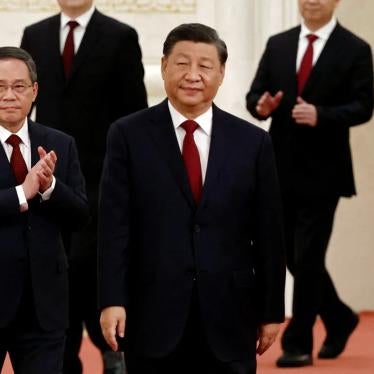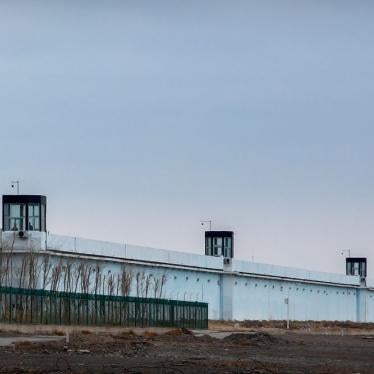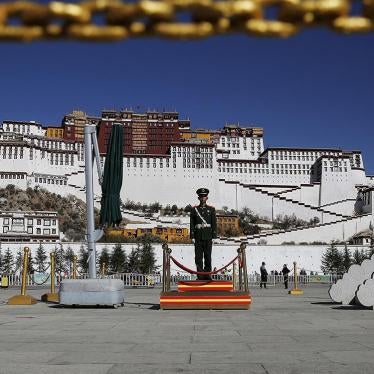A high-level Chinese official who’s overseen numerous rights abuses has come under official investigation. But hopes for real justice aren’t high.
When the news broke today that the Chinese Communist Party will investigate China’s former domestic security czar Zhou Yongkang for “grave violations of discipline,” I decided to run his name through Human Rights Watch’s website.
His name turns up in pieces about police abuses of drug users and sex workers, not to mention the enforced disappearances and highly politicized prosecutions of peaceful critics of the government and the massive expansion of the domestic security apparatus. If not named explicitly, his role is implicitly shot through much of our work about serious setbacks to human rights protections in China in recent years.
The investigation is widely seen as another trophy for President Xi Jinping’s anti-corruption campaign, which promises to prosecute “tigers and flies” alike.
But like the 2013 prosecution of Bo Xilai, a top Community Party leader felled by a scandal involving bribery, embezzlement, and abuses of power, the investigation and expected prosecution of Zhou should not be confused with justice or the rule of law. Like Bo, Zhou has been detained for months outside of any formal legal process. Like Bo, the initial investigation of Zhou will be carried out by the Party, not the judicial authorities. And, like Bo, if Zhou’s case is actually transferred into the formal court system, it is equally unlikely that any of the basic legal protections that exist on paper – access to evidence, right to counsel of choice, and freedom from coerced confession – will apply.
There will almost certainly be another level of injustice in Zhou’s prosecution: that the victims of his abuses are unlikely to be able to bring cases against him or those who carried out his orders. The leadership’s imperative, as past cases have shown, will be to prosecute Zhou in way that serves their political aims, which means creating an impression of combating corruption. Will those people disappeared by police, beaten by urban para-police, imprisoned in black jails, or – irony of ironies – charged with “disturbing public order” for calling independently for corruption investigations during Zhou’s tenure have their day in court?
Prosecuting a handful of high-level officials through show trials will not resolve China’s corruption problem or bring an end to rampant human rights abuses. Absent far broader prosecutions by capable, independent judicial authorities into violations defined by law and trials that meet international standards, it’s just a matter of time until the next show trial starts.







